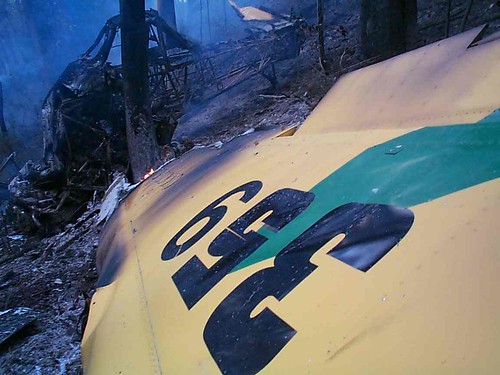21 July 2007
21 July 2007
|
|
 Based on this article, Popular Mechanics outlined a very important and contriversial topic that I need to debunk as a pilot. They claimed to have gone and studied every American plane crash since 1971 and found that the survival rate for backseat flyers is higher than those in first & business class.
Based on this article, Popular Mechanics outlined a very important and contriversial topic that I need to debunk as a pilot. They claimed to have gone and studied every American plane crash since 1971 and found that the survival rate for backseat flyers is higher than those in first & business class.They even go as far as saying:
The funny thing about all those expert opinions: They're not really based on hard data about actual airline accidents. A look at real-world crash stats, however, suggests that the farther back you sit, the better your odds of survival. Passengers near the tail of a plane are about 40 percent more likely to survive a crash than those in the first few rows up front.
Those so called 'expert opinions' can't be based on hard facts becuase you have to realise something about how aviation accidents happens before looking at the statistics. You simply can't investigate and plant statistics on an aircrash the same way you do with car crashes... it just doesn't work that way when it comes to aviation.
1) Analyzing previous plane crashes will not predict fatalities or fatality placement (in the cabin) in future plane crashes. Whenever an accident occurs, it is investigated and anything that failed is repaired on all airplanes in service, so most likely that particular kind of failure/accident will not occur again.
2) There are so many variables that occur during takeoff, flying and landing that it is impossible to predict future crashes-and if future crashes could be predicted they would be designed out of the airplane.
3)It is usually not the plane that determines the crash so much as poor weather or human error (such as the case with many mid air collisions).
The truth still remains as a fact, not as a 'myth'. Theres no safe place inside an airplane durring a crash, and any pilot (student to comercial) will tell you the same thing. Luck and chance ditermains your fate durring a plane crash, not where you are seated... its that simple!
















 July 2005
July 2005






